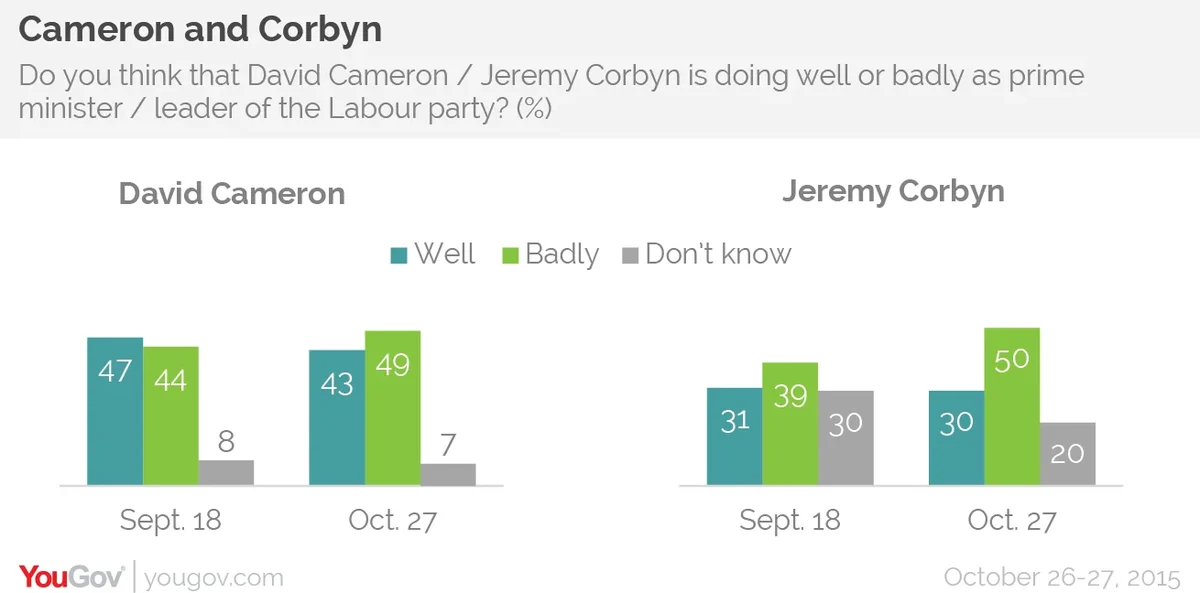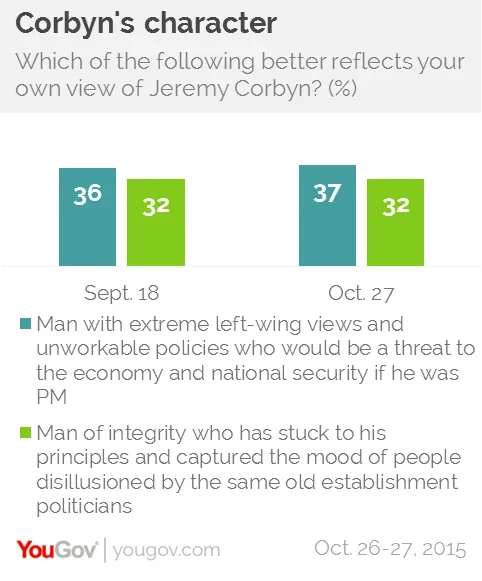YouGov’s latest survey of party leaders’ ratings contains good news and bad news for Jeremy Corbyn – his problem is that the bad rather swamps the good
Five weeks ago, just days after Corbyn was elected Labour leader, we found that he was the first opposition leader in polling history – and data go back six decades – to start off with a negative rating. 31% had a favourable initial impression, while 39% did not. That produced a net score of minus 8. (A further 30% had no opinion – a high figure but one to be expected so early in his leadership.
To make things worse, David Cameron had a positive score. 47% thought he was doing well, while 44% said he was doing badly: a net rating of plus 3.
As always, that survey deserved to be treated with some caution. It was conducted in the middle of the party conference season. It’s a useful rule to avoid firm judgements until some time has elapsed, and Westminster, and politics generally, are back to normal.
That time has come, so we have repeated our questions about the party leaders. The good news for Corbyn is that he no longer faces a Prime Minister with a positive score. His rating is now minus 6 (43% say he is doing well, while 49% say badly).

However, the news for Corbyn himself is much worse. His rating has slumped to minus 20. 30% say he is doing well, while 50% say badly. It’s not that the proportion saying ‘well’ is down; in fact it is virtually unchanged. Rather, his problem is that the previous ‘don’t knows’ are breaking solidly against him.
This should worry Labour’s leader. He has gone to great lengths, in his speech to his party conference and in successive Prime Minister’s Questions, to present himself as a reasonable, principled ‘new politics’ leader, in contrast to the hectoring, strident ‘old politics’ style associated with most other senior politicians.
That’s not all. In the past few days, Corbyn has had a perfect cause to fight – against the Government’s plans to reduce the tax credits of low-paid workers. This battle dominated the news while our latest poll was being conducted. It almost certainly explains the dip in Cameron’s rating.

Yet neither Corbyn’s general approach, nor Labour’s stance on tax credits, have done him any good. This is confirmed by another question we repeated from mid-September. We tested rival views about him, and found that he has made no progress in persuading voters that he represents a fresh and honest breath of political air:
These are still early days. Corbyn has time to improve his ratings. He is not as unpopular as Ed Miliband was for much of his time as leader (though Miliband still enjoyed a net positive rating at the same early point in his leadership). But after voters have had some weeks to judge Corbyn, and at a time when the Government is in trouble, our figures should give him and his party pause for thought.
PA image








